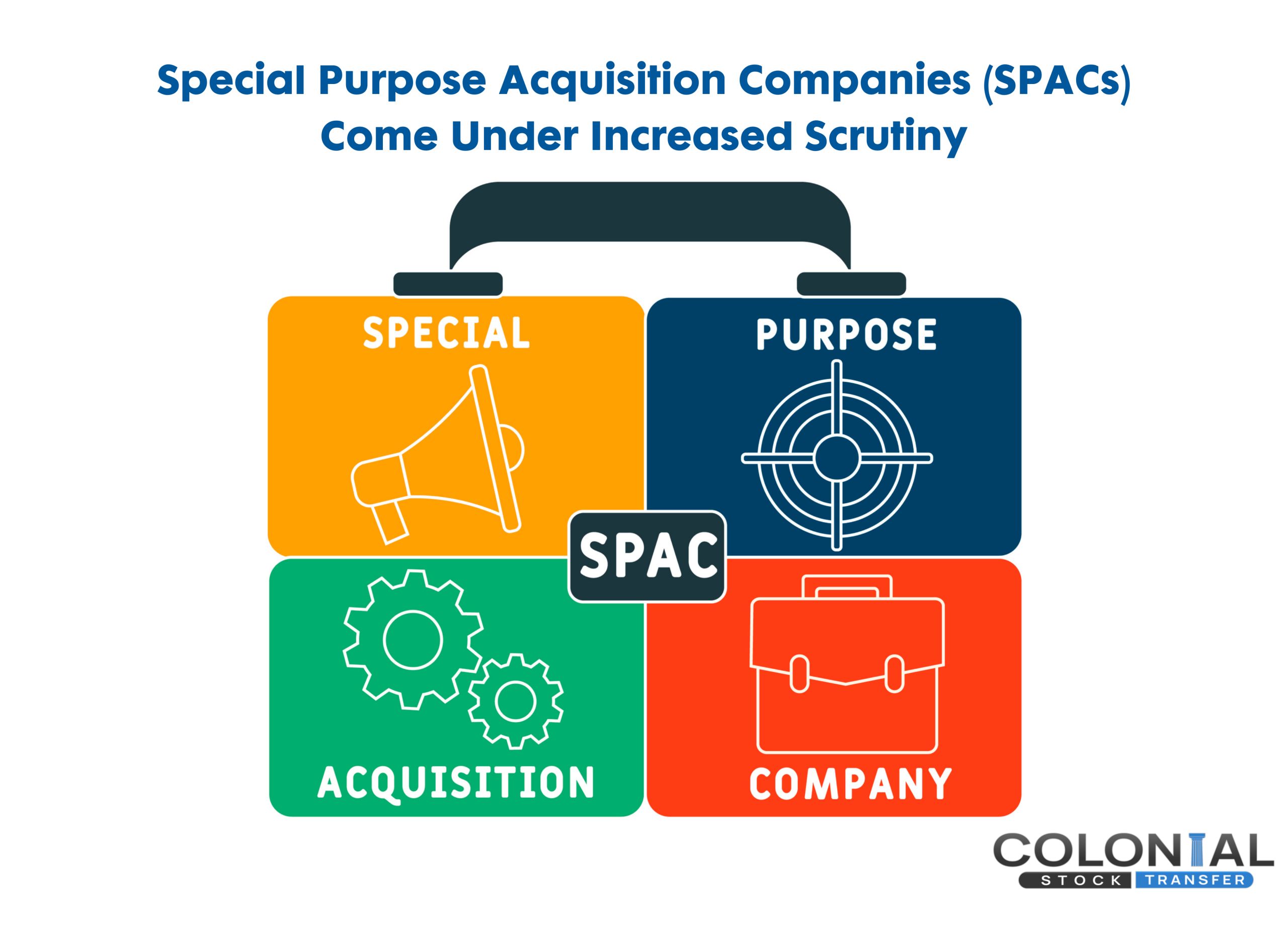
Special Purpose Acquisition Companies (SPACs) dominated financial headlines in the first half of 2021 due to an unprecedented surge in popularity. “Over the past six months, the U.S. securities markets have seen an unprecedented surge in the use and popularity of Special Purpose Acquisition Companies (or SPACs)” wrote the SEC’s John Coates, Acting Director, Division of Corporation Finance, in an April Public Statement.
But recently, the popularity of SPACs has waned as the process has come under increased congressional and regulatoryscrutiny, and legislation has been introduced to bring greater transparency.
Congress SPAC Scrutiny
In April, Sen. John Kennedy (R-La.) introduced the Sponsor Promote and Compensation (SPAC) Act, seeking to “provide greater transparency.” If enacted, the SPAC Act would require the SEC to “issue rules on enhanced disclosures for SPACs during the initial public offering stage and the pre-merger stage to make those disclosures more transparent to investors, especially main street investors.”
SEC SPAC Scrutiny
At the same time as Congress takes a closer look at SPACs, Securities and Exchange Commission (SEC) members have signaled that reviewing regulations affecting SPACs will be a priority in the coming months. In May of 2021, SEC Chair Gary Gensler testified before the Subcommittee on Financial Services and General Government regarding SPACs. “[T]he surge of SPACs raises a number of policy questions. First and foremost, are SPAC investors being appropriately protected? Are retail investors getting the appropriate and accurate information they need at each stage?… It could be the case that SPACs are less efficient than traditional IPOs”, he testified.
“The staff at the Securities and Exchange Commission are continuing to look carefully at filings and disclosures by SPACs and their private targets… They will continue to be vigilant about SPAC and private target disclosure so that the public can make informed investment and voting decisions,” wrote Coates.
Fees, Conflicts, and Sponsor Compensation
One area Coates identified as potentially problematic concerns issues related to fees, conflicts, and sponsor compensation, posing several questions SEC staff will be evaluating. “Are current liability protections… sufficient if some SPAC sponsors or advisors are touting SPACs with vague assurances of lessened liability for disclosures?… Do current liability provisions give those involved.. sufficient incentives to do appropriate due diligence?… Is it appropriate that the choice of how to go public may determine or be determined by liability rules?” While SPACs are sometimes touted as a way to simplify the IPO process and provide more certain pricing “in some ways, liability risks for those involved are higher, not lower, than in conventional IPOs, due in particular to the potential conflicts of interest in the SPAC structure,” he wrote.
Celebrity Sponsorship and “Baseless Hype”
Another area of concern centers on unfounded hype, often driven by celebrity endorsement. In March of 2021, The SEC’s Office of Investor Education and Advocacy (OIEA) cautioned investors “not to make investment decisions related to SPACs based solely on celebrity involvement… Celebrities, like anyone else, can be lured into participating in a risky investment or may be better able to sustain the risk of loss. It is never a good idea to invest in a SPAC just because someone famous sponsors or invests in it or says it is a good investment.”
Protecting Investors from SPACs
In summarizing the public statement, Coates pointed to specific SPAC- related questions the SEC will seek to answer to help investors make informed decisions. “What disclosures do investors need to make informed investment and voting decisions? How should the SEC, its staff, and private actors weigh the capital-formation costs and benefits of disclosures, procedures, and liability rules? Do particular disclosures, procedures, and liability rules reduce the all-in costs of capital? Information should be cost-effective and reliable, and not materially misleading, in every securities transaction. Investors should have access to that information – and then be allowed to make their own decisions about how to invest or vote.”
The answers to those questions will likely shape any future action by the SEC regarding SPACs.




